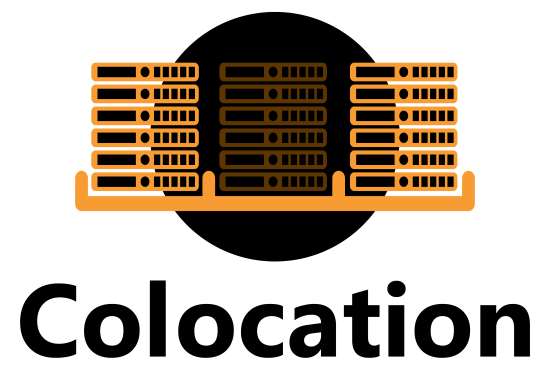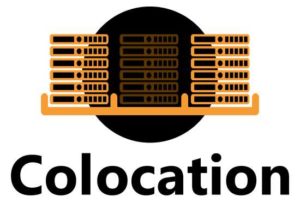What Your Business Needs To Consider Before Investing In Colocation
When it comes to data storage, there are a lot of different options businesses can choose from.
One of the most popular choices is colocation. Colocation involves storing your company’s data in a third-party data center. This can be a great option for businesses that need more space or want to reduce their IT costs.
However, before making the decision to invest in colocation, there are several factors you need to consider.
In this blog post, we will discuss some of the most important things to keep in mind when deciding if colocation is right for your business. We will also discuss the pros and cons of investing in colocation, so you can make an informed decision. So let’s get started!

What are the things you should keep in mind when investing in colocation?
Security, connectivity, scalability, location, and support are 5 of the most important factors to keep in mind when choosing a colocation provider. Let’s discuss each of these in more detail.
1. Security
One of the most important factors to consider when choosing colocation is security. When you store your data off-site, it is important to make sure it is stored in a secure location.
Data centers that offer colocation services should have strict security measures in place to protect your data. This includes things like biometric security, CCTV, and physical security measures.
So before you choose a colocation provider, make sure to ask about their security protocols. You want to choose a provider that can offer you the highest level of security possible while staying within your budget. If you’re in Australia, consider data centres that offer colocation with Macquarie Data Centers if you’re looking for good security.
2. Connectivity
Another important factor to consider when choosing colocation is connectivity. That’s because when you store your data off-site, you need to be able to access it quickly and easily.
The last thing you want is for your data to be stored in a location that is difficult to connect to. This will not only hamper the day-to-day operations of your business, but it might also negatively impact your customer service and lead to lost customers and revenue.
So make sure to choose a data center that offers high-speed connectivity options like fiber optic cables. This will ensure that you can access your data quickly and without any problems.
3. Scalability
Scalability is another important factor to consider when choosing colocation, especially for businesses that are rapidly growing and plan to expand their data storage needs in the future.
When you store your data at a colocation facility, you need to make sure that the provider can accommodate your future needs. That’s why it’s important to choose a provider that offers flexible plans and can easily scale up your storage as needed.
Now, it’s important to keep in mind that scalability goes both ways. Not only do you need to make sure that the provider can accommodate increased storage needs, but you also need to make sure that they can scale down your storage if needed. This is important because it can help you save money in the long run.
4. Location
Another factor to consider when choosing colocation is location. That’s because the location of the data center can impact things like connectivity and latency.
For example, if you store your data in a data center that is located far away from your office, it will take longer for your employees to access it. This can impact productivity and make it more difficult to work with your data.
On the other hand, if you store your data in a data center that is located close to your office, you will be able to access it more quickly. This can help improve productivity and make it easier to work with your data.
5. Support
Finally, you need to consider support when choosing colocation. That’s because things like power outages and hardware failures can happen. And when they do, you need to know that you have a team of experts who can help you get back up and running as quickly as possible.
Make sure to choose a colocation provider that offers 24/7 support so you can get the help you need, when you need it.
So those were some factors you need to consider when choosing a colocation provider. But how do you decide if it’s the right solution for you in the first place? Well, that’s what we’ll discuss in the next section.
What are the pros and cons of investing in colocation?
There are a few important pros and cons of investing in colocation that you need to keep in mind before making your decision. Let’s take a look at a few of the most important ones.
Pros
Cost-effective: One of the biggest advantages of colocation is that it can be much more cost-effective than traditional data center options. This is because you are only responsible for the cost of the space and bandwidth that you use, rather than being responsible for the entire data center.
Flexible scalability: Another big advantage of colocation is that it offers flexible scalability. This means that you can easily scale your colocation services up or down as needed, without having to worry about contracts or long-term commitments. This can be a big advantage for businesses that are growing quickly or that have fluctuating needs.
Improved security: Another advantage of colocation is that it can offer improved security. This is because colocation facilities are typically much more secure than traditional data centers. They often have 24/7 security, multiple layers of security, and state-of-the-art security features that can provide well secured and all rounded.
Cons
Fluctuating monthly costs: One of the drawbacks of colocation is that your monthly costs can fluctuate. This is because you are only responsible for the space and bandwidth that you use, and your usage can vary from month to month. This can make budgeting tricky, which can be an especially big problem for new businesses.
Lack of control: Another potential downside of colocation is that you have less control over your environment. This is because you are sharing space with other businesses, and you don’t have as much control over the physical infrastructure.
This can be an issue if you have specific needs or requirements for your data center. It can also cause problems with maintenance activities, as you might need to follow the schedule of the colocation provider.
Difficulty in finding a good location: Finally, it can be difficult to find a good location for your colocation facility. This is because there are a limited number of facilities available, and they are often located in remote areas. This can be an issue if you need to be close to your data center for reasons such as latency or disaster recovery.
So, those are a few of the most important pros and cons of colocation that you need to keep in mind.
Ultimately, the decision of whether or not to invest in colocation will come down to your specific needs and circumstances. However, if you keep these factors in mind, you should be able to make the best decision for your business. Also, don’t forget to prioritize security when looking for a colocation provider!




